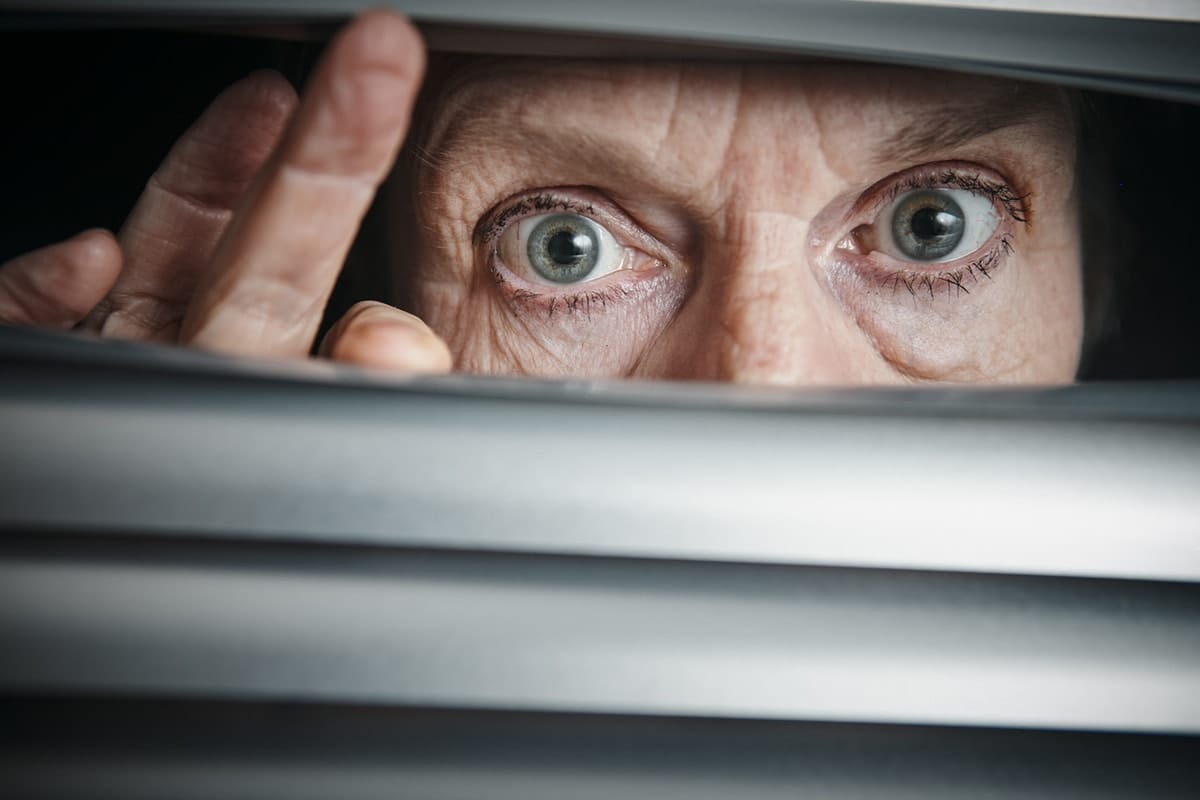
It’s clear that older people – let’s say the over-70s – can be forgotten in society, often invisible, unheard and isolated.
The Australian government’s troubled COVID vaccination rollout to aged care homes and their workers is a case in point, albeit an extreme one.
In both aged care homes and the community – in our neighbourhoods – it boils down to society’s duty to older people. How do we work with them to reduce their fears, both real and perceived?
New research by academics from Monash University and the German Max Planck Institute for the Study of Crime, Security and Law has examined age differences in fear of crime in urban neighbourhoods, but the paper also reveals important questions about ageing and how best to deal with societal issues in wellbeing and physical and mental health for older people.
Associate Professor Rebecca Wickes, a Monash University criminologist and director of the Monash Migration and Inclusion Centre (MMIC), is a co-author.
The key finding is a surprising one – that even in “advantaged” areas of major cities, older people still have a high fear of crime, despite minimal exposure to actual crime.
This can’t be good. Ageing is challenging enough without worrying about things that don’t exist or have a slim chance of happening.
“Ours is an interesting finding, definitely,” says Associate Professor Wickes. “It points to the fact that it might be a lack of exposure to, or lack of interaction with, a neighbourhood or an environment that might be as harmful to them as a neighbourhood with serious crime problems.
“This is a really critical and important path for future research.”
Sociologists Dr Barbara Barbosa Neves and Associate Professor Narelle Warren (both from the School of Social Sciences at Monash University) are embedded in long, complex and close-up research into aged care, older age, loneliness and ageism. This research intersects with their colleagues in criminology.
Dr Neves outlined the curious detail of one of her recent research projects to The Age in May. She was interested in how aged care residents experience loneliness, and had an Australian novelist, Josephine Wilson, help out by writing short pieces about some of the aged care participants.
The aim was to help Dr Barbosa Neves communicate her findings more clearly. She told The Age that her deep research into older age groups usually doesn’t capture peoples’ imaginations in the same way that children’s issues would.
The point here being that she asked a Miles Franklin Award finalist – for a book about the loneliness of an old folks’ home – to make it more compelling; less about dry social science, more about emotion. She felt like people wouldn’t otherwise listen or comprehend.
“There’s an expectation that older people will retreat inward as they age,” she says. “This is a societal view that they [older people] internalise, and it affects their wellbeing and sense of personhood and quality of life. They close themselves in by internalising as a coping mechanism.
“It’s a very complex issue, but it does not help if they’re internalising negative ideas about themselves.”
Positivity can reduce stress
A paper from 2018 by researchers from the Yale School of Medicine and the US National Institute on Ageing provides additional support for Dr Barbosa Neves’ research, showing that “positive age beliefs” can reduce stress in older people, and prevent dementia.
Explicit ageism, Associate Professor Warren says, comes in the form of being criticised for walking or moving slowly, being “pushed and shoved”, being ignored or not listened to.
Media depictions, says Dr Barbosa Neves, can tend to be either frail or “selfish and greedy” due to an assumption of property or investment wealth.
Some older people don’t have the support networks or urban frameworks to see that their state of mind is unnecessary.
Associate Professor Warren says ageism mixed with social isolation can lead to an older person feeling more fearful and isolated.
She also argues that most built environments aren’t designed with older people in mind, which may make engagement with the outside world even more challenging.
Which brings us to crime, or the assumption of crime. Why are our older people scared when they often don’t need to be?
Associate Professor Wickes’ paper was published after research in two Australian cities (Melbourne and Brisbane) and two German cities (Essen and Cologne). German researchers from the Max Planck Institute for Foreign and Criminal Law, Dr Goren Kober and Professor Dietrich Oberwittler, were heavily involved.
“The study design of two cities in each country helps to generalise findings beyond one local context,” Professor Oberwittler told Lens. “It turns out that different cities show very similar results.
“Generally speaking, the dynamics of human development suggest that positive change is possible also in older age. But it seems much more promising to start caring about these issues earlier in life in order to be prepared for older age.”
Read more: Counting the COVID-19 social cost: How people have been faring in the pandemic
The research involved more than 12,000 participants aged 25 to 90 from 435 neighbourhoods over the four cities. It used unemployment rates “as a lead indicator of problematic neighbourhood conditions”, but found, as outlined, that older people feared crime regardless of where they lived.
In disadvantaged neighbourhoods, younger people were scared, too, but not so much in advantaged neighbourhoods.

Part of a bigger picture
The research is heavily based on and inspired by a mammoth undertaking directed by the Harvard School of Public Health in the US city of Chicago, mapping how families, schools and neighbourhoods affect child and adolescent development.
What it explains is that fear is a state of mind, but some older people don’t have the support networks or urban frameworks to see that their state of mind is unnecessary.
Associate Professor Wickes adds that media sensationalism regarding neighbourhood crime – which has happened alongside mass human migration, border security concerns, and media partisanship – plays a significant role in shaping older peoples’ perceptions and fears.
“When isolated and relying on commercial TV news or news that might have a particular political persuasion, they may see a pretty scary world out there, and be less inclined to engage or push themselves out of a comfort zone to meet people.”
Recently, Associate Professor Wickes co-authored a Monash research paper, led by Dr Kathryn Bonier, covering some sensationalist media representation of “African gangs” in Melbourne, and found “significant and deleterious effects of the ‘black and criminal’ association on understandings of crime and disorder in Australia”. It drew on census, crime and extensive survey data.
Read more: Voices of reason: young South Sudanese Australians have their say
“Reporting about gangs and crime and home invasions is often sensationalist,” she says, “particularly from conservative media outlets. It’s done irresponsibly. If you’re isolated, ageing and consuming sensationalist media, that could definitely increase fear.”
The research, she says, adds to an ever-increasing bank of knowledge about the causes of crime, fear of crime, and how to create more inclusive communities among ageing populations.
“These are some of many papers that policymakers could draw on to make policies that are more effective, and encourage inclusion and wellbeing.”





